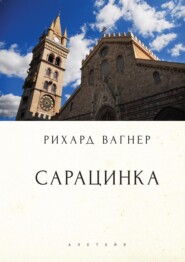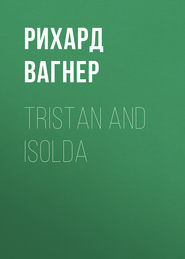По всем вопросам обращайтесь на: info@litportal.ru
(©) 2003-2025.
✖
The Valkyries
Настройки чтения
Размер шрифта
Высота строк
Поля
But by now had Brunnhilde put bridle again on to her horse Grane, and led him lightly out of the cavern, and came upon Siegmund and his bride sitting thus. And he was aware of her coming, and looked up, and saw her glorious face; but there was no smile there, for the work before her gave no joy to her. Gravely she looked at him, and her heart was stirred with sorrow for the deed that her father had laid on her to do, and her eyes burned large with doom.
"Siegmund, I am here," she said, "and from here soon I lead thee. Thou seest that I am near thee?"
And Siegmund answered: "Yes, but I know thee not," and a strange cold heaviness was lead in his limbs and in his eye.
"I come near to those whom death comes near to," said she, "and none others see me. He into whose eyes I look stays not in the light. With me thou goest, and thou goest with me far."
Then something of the great calm with which death is ever girt about, struck on Siegmund's heart, but he was not afraid.
"And where goest thou?" he asked.
"I go to Walhalla," said she, "where the great father waits thee. There lovingly will the hands of dead heroes greet thee; with hands outstretched and with smile of welcome will they greet thee."
"And shall I find there Walse, the Wolsung's father?" said he in wonder.
"His face too shall greet thee."
"And will there be a woman there too, to greet me?" asked he.
"Yea, surely," said she. "The maidens of his will are there, and she who will hand thee the gladsome wine is Wotan's daughter. Red is that wine, and with it are the hearts of heroes made glad."
But it was not after Wotan's daughter that Siegmund asked, and again he said:
"O most holy and austere of maidens, Wotan's child, truth is written in thine eyes, and truth thou wilt tell me. It is not of such I ask, but of my bride Sieglinde. Will she be there?"
But Brunnhilde shook her head.
"Death comes not for her yet," she said, "and she shall not be there."
Then Siegmund laughed.
"Then get thee back to Walhalla," cried he, "and give my greeting to the high walls of Wotan, and to him who sits therein and is lord thereof. And greet for me Walse" – for he knew not that Walse his father was none other than Wotan – "and greet the many heroes and the maidens of the will of the highest. But I come not after thee."
Then Brunnhilde was very sorry, yet what was to be, was to be.
"Siegmund," she said, "thou hast looked on me, and with me thou must go. Lightly thou reckest of mortal foes, for thy limbs are strong, but the wise man wars not against death. I am here to claim thee for him."
But though a chill seemed to fall round Siegmund, as if the sun had passed behind a cloud, yet was he not afraid; and, lo! his dear burden still leaned at his knee.
"I come not," he said, "for where Sieglinde is, in weal or woe, there I abide, and go not thence. Thy face daunts me not, I shrink not before thy glance, though bright it is with the brightness of danger. Besides, who is it that deals death to me?"
"The hand of Hunding," she said. "For thus – at last – the lot was cast."
But Siegmund only smiled, and his fingers dwelt lovingly on the sword-hilt.
"I fear not that," he said, "for it is by my hand that he will fall, and if thou seekest a dead man, I will give thee a corpse, but not mine. Look at my sword, for he who let me gain it, promised my safety. Thus thy threats and thy warning are idle words, the buzzing of a fly."
Then Brunnhilde's face grew stern and set.
"He who let thee gain the sword," she cried in a loud voice, "now is determined otherwise, and has decreed thy death. Thus the magic of the sword is a thing of nought, a shadow that has passed away."
But at her raised voice, Siegmund forgot death and the sword and all else, and feared only that she would wake Sieglinde, who now slept gently.
"Be still, be still," he whispered, "and wake her not."
And he bent over her, and sorrowed for her, for it seemed to him that all the world was gathered against her whom he loved so well, and that he alone, for whom she had braved the wrath of men and gods, was on her side. Should then he forsake her? And if, as the maid had told him, the giver of the sword was now unfaithful, and decreed him death, then he would have none of his Walhalla; Hella were sweeter to his troubled soul. High burned his anger at this unfaithfulness, and he turned to the maid who stood watching him.
"If then death is decreed for me," he said, "think you I will be at ease in Walhalla? Nay, Hella rather than such peace."
Then Brunnhilde's stem glance softened, and she marvelled that he so loved the woman.
"Then is eternal joy so worthless to thee?" she asked him softly. "Dost thou desire nothing but the woman who is sleeping there? Is nought else sweet to thy soul, and nought else desirable?"
And he looked at her with bitterness, and marked the softened glance of her eye. Yet though she appeared so young and so maidenly, her heart must needs be utterly cold, since she did not comprehend how a woman filled the heart of the man who loved her.
"Dost thou mock me?" he said. "For what else could I care than that which lies here? I think thou art a foe to me, and would gladly see harm and woe come to me. Be it so; and may my grief satisfy the greed and hunger of thy heart. But as for Walhalla – it is idle for thee to name it to me. Dost thou not see? Here is my heaven and my rest."
Then she began to understand the need of his heart, and with that she felt a tenderness for both him and the woman which was new to her.
"Yes, yes," she said, "I feel what thou feelest. But, Siegmund, what must be, must be. Leave her then to me. Safely and surely will I ward her and keep all harm from her."
And she would have lifted Sieglinde up and taken her to some hiding-place of safety, but he stopped her.
"Stay," said he, "she is mine, mine, and no other shall touch her. If so be that I must die, as thou sayest, it is better, it is better – for all the whole world is against her – that she should die, here, now. I will slay her myself as she sleeps, and death will come softly to her as a dream. Thus she will be at peace."
Then did the tumult and trouble in Brunnhilde's heart seethe and stir.
"No, no!" she cried. "Listen to me, for thou speakest wild words. The sacred pledge of love which thou hast given, for that I plead. Siegmund, Siegmund, thou canst not slay thy son!"
Yet he drew the sword, and brandished it.
"His is the blame," he cried, "who promised me victory with this sword, who now turns his back on me, faithless and untrue. Yet shall it aid me, for that with it I can give peace to her. Strike then, sword of need, sever both lives at once."
But at the sight of his sword uplifted to strike, all the woman in Brunnhilde rose invincible, and the solemn command of Wotan that she should fight for Hunding weighed lighter than chaff. In a moment her mind was made, and counting not the cost, she knew that she must needs befriend Siegmund and fight for him, and the thunders and terrors of Wotan had no weight with her. And with a cry she stayed his arm.
"Ah, I break," she cried. "I cannot do the deed that was laid on me. She shall live, she shall live, and instead of death I will bring thee the joy of victory. No longer fight I for Hunding; it is thee, Siegmund, whom my shield will shelter. So up, up; already the horns of battle sound nearer. What shall be, I cannot tell, but the sword thou wieldest is good steel, and the shield of me, Brunnhilde, will guard thee in the coming fight. Hail to thee, Siegmund, hail! At the fight I await thee."
All her face was afire with human love and pity, and so great a change was there from the look of that stern cold maiden and her pitiless beauty, that Siegmund could scarce believe that this was the same Brunnhilde. But at her words, joy and gladness uplifted him, and his heart, erstwhile full of despair and bitterness, was once more strong and hopeful. But Brunnhilde tarried not, for indeed, as she said, the horns of battle sounded near, but swung herself on to her horse, and rode swiftly off among the rocks towards the horns and approaching battle, and the noise of her horse's hoofs sounded fainter, and then was silent.
Now as they thus spoke together, behold the heavens had grown very black, and over the bright aspect of the sky had ridden swiftly up the storm-rack, low and sullen-looking, and torn into streamers and ribands of wrath. Already the hills and vales beyond had been entirely blotted out, and by now the clouds had reached even to that rocky ridge not far from where Siegmund sat, while mingled with the trouble and menace of the heavens came the blast of the horns of battle sounding ever nearer, and Siegmund knew that it was time for him to be gone to meet the black foe who awaited him. Then very gently he got up, and without waking Sieglinde, laid her back against the rocky seat, and once more bent over her, to see how she fared. The blessed balm of sleep had been spread over her eyes, and she was at rest, and her heart was unconscious of the wild alarms of war. And Siegmund wondered whether it was the maiden, who seemed so fierce and cold, but whose soul at the end had been touched with so gentle and womanly a pity, who had shed this gift on the woman, thinking that the clash of swords and the din of battle would daunt her. Then even as he bent over her she smiled in her sleep, as if some happy dream had come to her. So he kissed her very gently on the forehead, marvelling that the trumpet-calls, which grew swiftly nearer, disturbed her not, and whispered to her —
"Sleep sound, beloved, till the battle be overpast, and peace, the peace of victory, welcome thy waking."
Then for the last time he turned from her, for peace was not yet, until Nothung his sword had spoken sharp words with its flaming tongue. Swiftly he strode up the rocky ridge, where the embattled thunder-clouds swallowed him up, nor was there any fear in his heart: only he longed to see Hunding face to face, and drive vengeance home.
But Sieglinde lay there smiling in her sleep, for it was even as Siegmund had supposed, and she was a child again living with her mother in the forest. Yet even as Siegmund left her, the tranquillity of her sleep was shaken, and it seemed to her that her father and the boy Siegmund were in the forest together, and though the hour was late, they had not yet returned. And she cried to her mother that her heart misgave her, for she was troubled with the looks and the words of certain strangers. Then in her dream the sweet air of the forest grew foul and black, and smoke swirled silently out of the woods, and tongues and fingers of flame came nearer, and the house where they dwelt caught fire. Then aloud she cried on Siegmund to save her, and with her own cry awoke. Yet was it not perhaps her own cry that woke her, but the sudden and sharp din of thunder near by, and starting up she saw she was alone, and all round her were storm-clouds of awful blackness, and from one to another shot the fires of lightning, and the thunder bellowed when it saw them. And mixed with the lightnings and thunders were the red cries of the horns of battle. Then, and her heart stood still when she heard, from not far off came the voice of Hunding, which she knew well and hated.
"Wehwalt, Wehwalt!" it cried, calling her beloved by the name he had shed as trees shed their leaves in autumn. "Where are thou? Wait for me; I am coming swiftly; else shall my hounds make thee stay."











